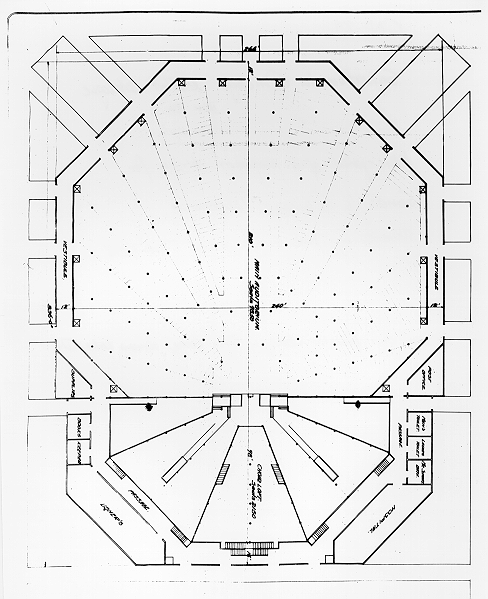As we trace the theme of God dwelling with His people, a major set-back has occurred in Genesis 11.
A daring and potentially self-satisfying attempt at repairing the major rift that first took place in the Garden failed miserably, as the builders of a great tower were suddenly confronted with their futility, as "the Lord came down to see the city and the tower, which the children of man had built."
We, the children of man, thought we were going up, congratulated ourselves on reaching the heavens--going up to God--when, like a dad sits down at his daughter's tea party, God came down to see their "progress."
The result is disaster, as our self-religion and autonomy are condemned and the people are scattered over the face of the earth.
There at Babel, man has plummeted to the bottom of our banishment, the depths of our nakedness--which, incidentally, we only noticed after we first sinned.
How will God dwell with man?
But, like the dawn of a new day after a dark, torrent night, hope rises in Genesis 12, when God initiates contact with a run-of-the-mill idolater named Abram.
In Abram, God re-initiates His process of dwelling with man. In Abram, God creates the nation of Israel, a people for His own possession who are eventually exiled to Egypt, then rescued and redeemed at the hand of Moses.
Fast-forward to Exodus 25-30, where Moses is given a detailed blueprint for a Tabernacle in the Wilderness. What a stark contrast these six, painfully detailed chapters give to the building project at Babel.
At Babel, the workers decided the plan, purpose and dimensions of their collective monument to human religion, but in the wilderness of Sinai, God's people were given exact, precise instructions.
Babel ended, predictably enough, in disaster and further banishment from God's presence, and by the time Moses comes down off the Mountain, having heard the clear instructions of the Lord, Israel nearly meets the same fate.
Because, while Moses is up the Mountain receiving the precise details of God’s meeting place with Israel, the people are down in the flat, casting their gold into a bonfire and smoothing out the edges to their golden calf.
Within a matter of hours, 3,000 men are killed by the priestly Levites and many more perish from a plague sent by the Lord, but the real disaster is still to come.
Moses goes up to meet again with the Lord and try to make atonement for the people, but he’s met with a “disastrous word” from the Lord:
“Go up to a land flowing with milk and honey; but I will not go up among you, lest I consume you on the way, for you are a stiff-necked people.”
Though Israel is still to inherit the Promised Land, it will be without the presence of God, and the lack of God’s presence there doesn’t just put a damper on the party—it spells disaster.
But, as the story unfolds, Moses pleads to the Lord to come with the people—either that, or stay with them indefinitely in the desert. This beautiful conversation in Exodus 33, between Moses and the Lord, culminates in the Moses boldly asking that the Lord would show him His glory, and in the Lord allowing Moses a glimpse of His goodness while He declares His name.
The end result of this encounter is that God will indeed accompany His people into the Promised Land, and Moses is soon set to work at building the aforementioned Wilderness Tabernacle. Exodus closes with a dramatic scene, where God's glory fills the Tabernacle, so much so that Moses isn't even able to enter it.
The point is that God has taken up residence with His people in the Tabernacle, and that is great news, but it is also temporary, shadow-like news.
 As Israel's history progresses, that tent is replaced by Solomon's temple, then by the rebuilt temple under Nehemiah, but still, the best is yet to come.
As Israel's history progresses, that tent is replaced by Solomon's temple, then by the rebuilt temple under Nehemiah, but still, the best is yet to come.Great as they may be have been, the Wilderness Tabernacle and the Temple are meant serve as mere shadows--good, godly shadows, but still just shadows--of the real Tabernacle, the true and better Tabernacle, where God comes down to meet with man finally and decisively.
God's full and final dwelling place with man won't be made of canvas, but of flesh and blood.



No comments:
Post a Comment